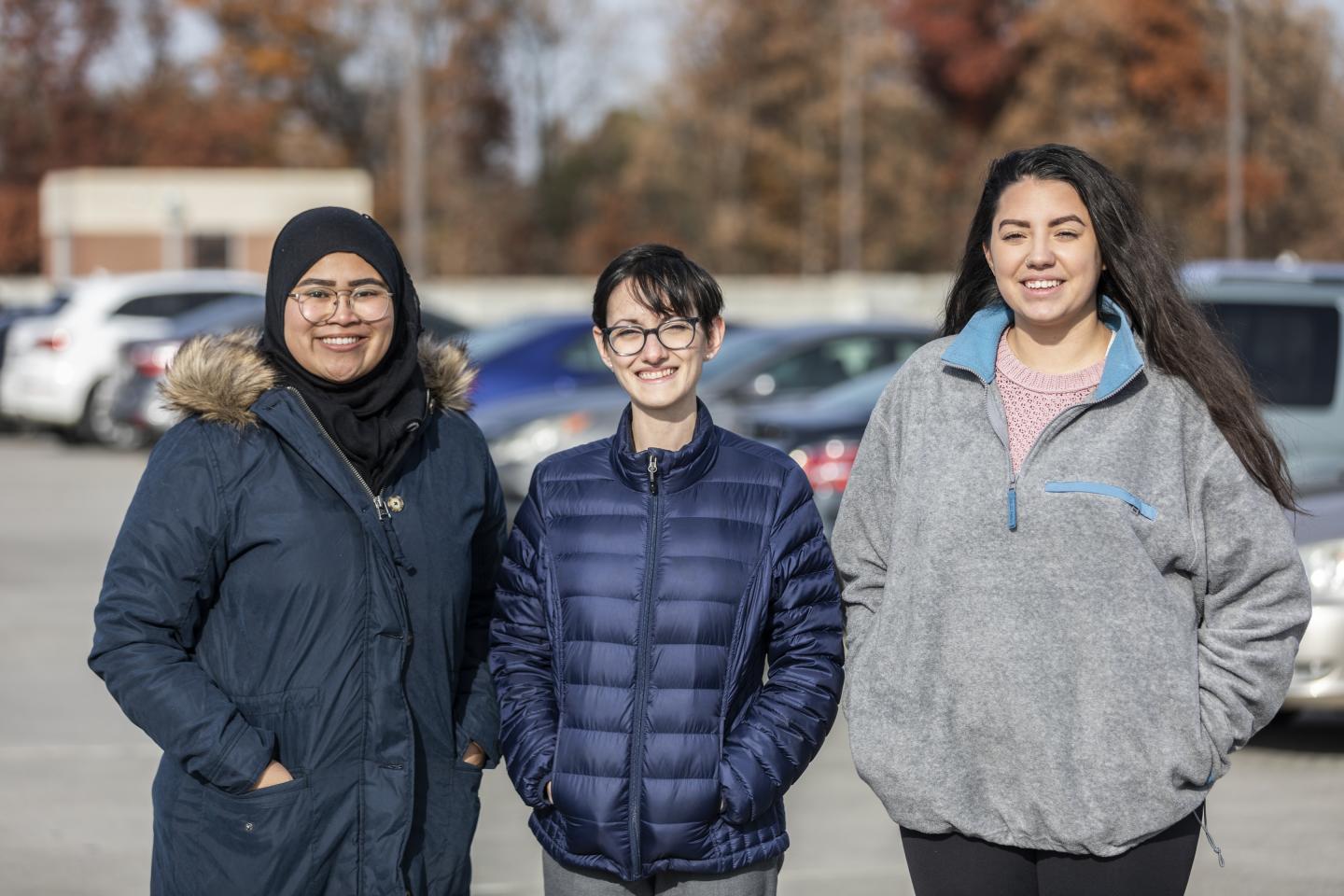George Mason University study finds higher exposure to air pollutants during rush hour for women commuters but no difference between trip length.

Credit: Photo by Lathan Goumas/Mason Strategic Communications
Studies have shown associations between exposure to traffic-related air pollution and adverse health outcomes, including preterm birth and low birthweight. However, few studies have estimated real-world exposures during personal vehicle trips for women commuters.
New research led by George Mason University’s College of Health and Human Services faculty found higher exposure to harmful pollutants during rush hour trips compared to other settings. Dr. Jenna Krall led the study published in Environmental Research.
Krall and colleagues conducted the first study to use personal air pollution monitors with vehicle monitors to measure women’s exposure to fine particulate matter air pollution (PM2.5), one pollutant emitted by traffic. They collected data across 48-hour periods among their sample of 46 women with a mean age of 26 commuting in the Washington, D.C. metropolitan area.
“Women frequently have different commute patterns compared to men, for example due to increased trips for household errands and/or transporting children,” explains Krall. “With this difference and adverse birth outcomes found in previous research, we believed it was important to focus on this population.”
The researchers did not find differences in PM2.5 exposures based on trip length, which might not be reflective of factors like traffic volume that impact exposures.
“Reducing vehicle trips might be one way to reduce PM2.5 exposures, and subsequently air pollution associated health effects,” explains Krall. “This is particularly important for vulnerable populations, such as pregnant women.”
In future work, the researchers plan to use additional vehicle data such as traffic and speed to better understand these exposures.
This study was made possible by a multidisciplinary seed grant from George Mason University and the Thomas F. and Kate Miller Jeffress Memorial Trust, Bank of America, Trustee.
Zimako Chuks contributed to this story.
About George Mason University
George Mason University is Virginia’s largest and most diverse public research university. Located near Washington, D.C., Mason enrolls 38,000 students from 130 countries and all 50 states. Mason has grown rapidly over the past half-century and is recognized for its innovation and entrepreneurship, remarkable diversity and commitment to accessibility. For more information, visit https:/
About the College of Health and Human Services
George Mason University’s College of Health and Human Services prepares students to become leaders and shape the public’s health through academic excellence, research of consequence and interprofessional practice. The College enrolls 1,917 undergraduate students and 950 graduate students in its nationally recognized offerings, including: 5 undergraduate degrees, 12 graduate degrees, and 11 certificate programs. The College is transitioning to a college public health in the near future. For more information, visit https:/
Media Contact
Danielle Hawkins
[email protected]
Original Source
https:/
Related Journal Article
http://dx.





